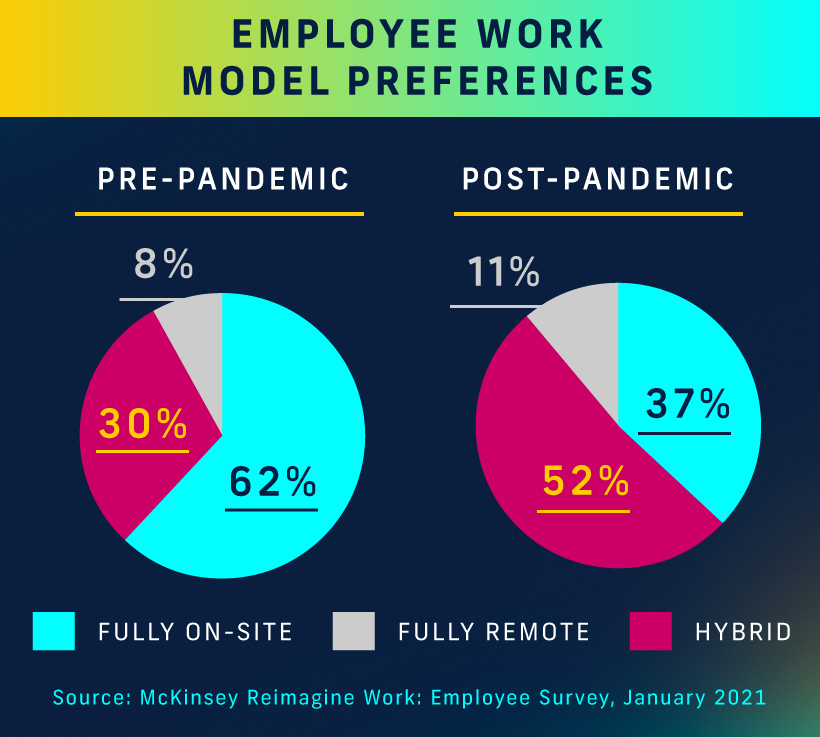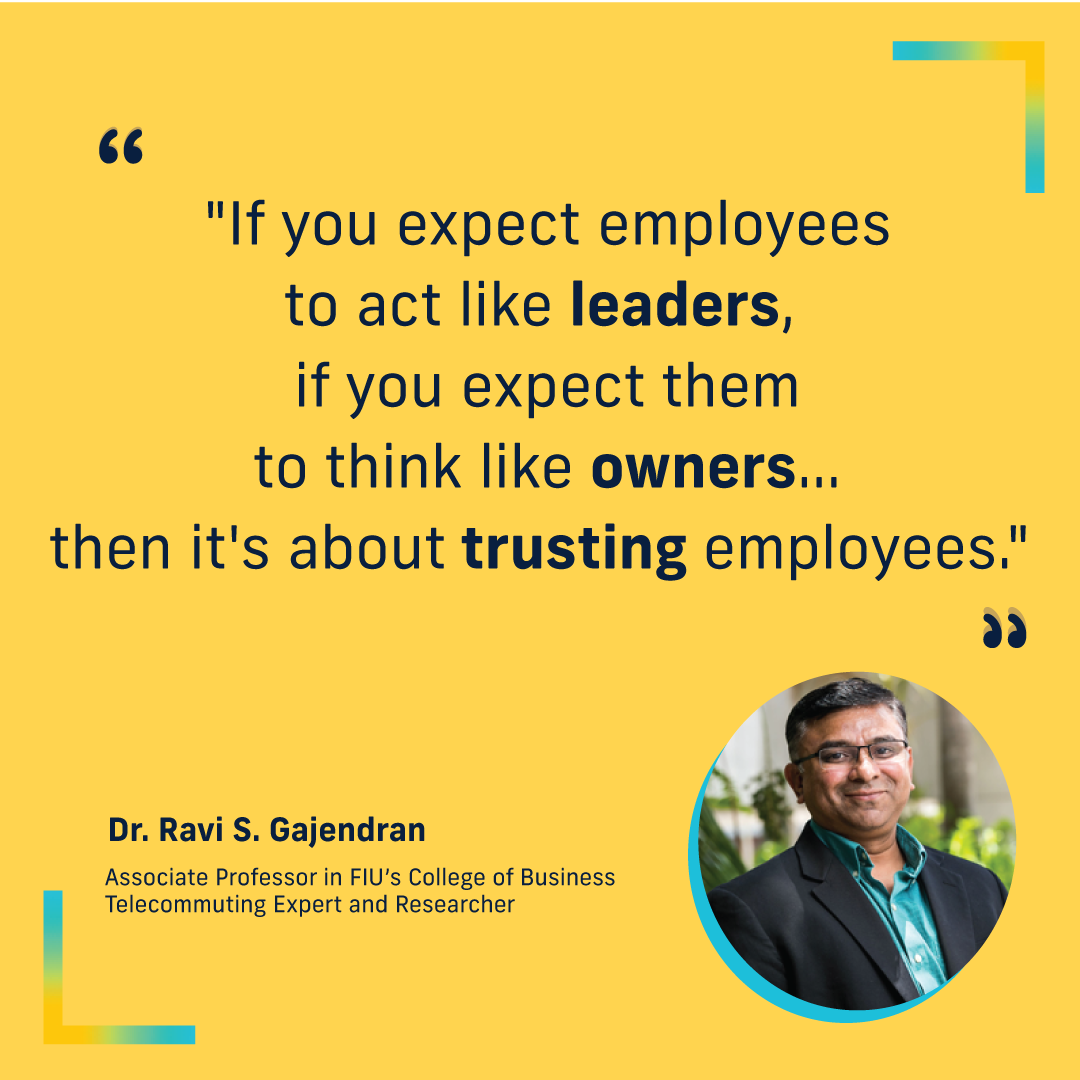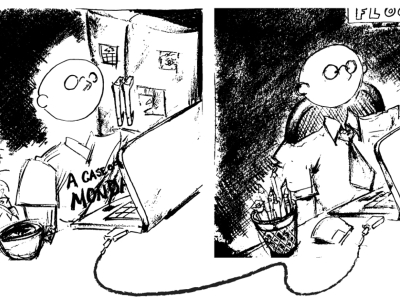The COVID-19 pandemic changed the work environment as we knew it. Lockdowns led to the remote working model, and widespread vaccination ushered in the era of the hybrid work model. Now, many companies want to welcome employees to return to in-person work, but some remote workers are not in favor of returning to the office. They prefer to remain remote or adopt hybrid work models instead as a compromise.
After over a year of untraditional work arrangements, it’s no surprise that some employees are not jumping for joy at the prospect of returning to pre-pandemic work arrangements. Working remotely granted many people a more fulfilling work-life balance, more time to take care of themselves and their families, and more autonomy over when, where, and how they work.
However, some employees found working in remote or hybrid settings draining, leading to fatigue and decreases in productivity. Furthermore, the vision for post-pandemic work at the leadership and executive level doesn’t always align with the employees’ vision. A recent report from McKinsey found that approximately three quarters of 5,000 non-executive employees surveyed want the option to work from home for at least two days a week, and over half the employees surveyed would like at least three days of remote work (McKinsey, 2021).

In contrast, over 75% of the C-suite executive leaders surveyed expect employees to work in the office at least three days a week, if not more. C-suite leaders cited concerns over the harms remote work presents to organizational culture and social belonging for employees.
Insights from FIU’s "Is My Mic On?" HR Event
Thomas Herdtner, senior director of human resources at Chewy, presented similar concerns over company culture in the most recent FIU Chapman Graduate School of Business’ “Is My Mic On?” event, which explored the future of hybrid and remote work from a human resources perspective.
"At Chewy, we believe that face to face collaboration is critical for innovation, relationship building, and problem solving, [but] we’ve obviously seen a lot of changes not just in the work environment but in the world around us throughout the last 18 months," said Herdtner. "We know other companies in the industry are certainly giving more flexibility and more permanent remote work options than what has been there previously, so how do [we] stay true to who [we] are at Chewy but still stay competitive?"
"How do we stay true to who we are but still stay competitive?"
For Herdtner and Chewy, the answer lies in the hybrid work model that employees – both at Chewy and in general – seem to favor over fully remote or fully in-person arrangements.
"We went on a temporary kind of remote setting, and [we] plan to return in a phased approach, where we bring in some of our senior leaders first and then bring in our general population later. Ultimately, when we return to our [in-person] setting, we'll move to a permanent three-two hybrid schedule where our team members work in the office three days a week and then have the flexibility to work from home two days a week," said Herdtner.
Ravi S. Gajendran, a telecommuting expert and associate professor of global leadership and management at FIU Business and speaker at the same "Is My Mic On?" event, chimed in to explain how the pandemic impacted the conversation around remote, hybrid, and telework arrangements.
"One of the research papers that I published for some analysis looks at all the research in the field and quantitatively synthesizes [it], and what we find in that meta-analysis is that telecommuting has largely beneficial effects and very little downside," said Gajendran. "One of the things that people were concerned about is relationships will suffer, your relationship with your boss will suffer, [and you] will be less productive, […] but with the pandemic what's happened is there's been a large-scale shift in the conversation for the first time, and now people are making arguments around a business case. They're talking about real estate cost reduction and [improvements in] productivity, work-family balance, job satisfaction and autonomy, [and] reduced stress."
Gajendran went on to delineate how the current research into successful hybrid models aligns with the policies Chewy plans to adopt.
"When people work from home, they have flexibility, and people value that flexibility, that autonomy, a lot," said Gajendran. "There's only one downside that we've brought from this meta-analysis, and that is if you're working from home, or you're working remotely more than two and a half days a week, relationships with coworkers suffer. So, two to three days at least in-office, and two to three days at home… I suspect that's going to be the ‘sweet spot’. That’s the balancing point."
Even with the benefits of telework arrangements, there can still be questions of enforcing accountability without sacrificing worker autonomy, particularly in the realm of camera-on versus camera-off policies in virtual meetings. How leadership chooses to approach such issues directly reflects company culture and how much trust they have in their employees.
"If you expect employees to all act like leaders, if you expect them to think like owners and to take ownership and responsibility, then mandating cameras-on kind of defeats that principle," said Gajendran, "Because it says ‘Look, I don't trust you enough to not slack off when you have the camera off,’ right? It could consume sort of mental resources for people who are not as comfortable having the camera on them all the time. It's about control. It's about trusting employees. And if you do that, you know, there's no need to mandate these things. The norms of how we can work with one another to be effective regardless of the camera on or off […] will emerge organically."

Though there are pros and cons to hybrid work, variations of the hybrid model seem to balance the best of the remote and in-person work models (face-to-face time, flexibility, and autonomy) while minimizing the harms (concerns over company culture, decreased productivity, and lack of flexibility).
To learn more about FIU’s Master of Science in Human Resources program or future “Is My Mic On?” HR events, view our upcoming virtual sessions here.


